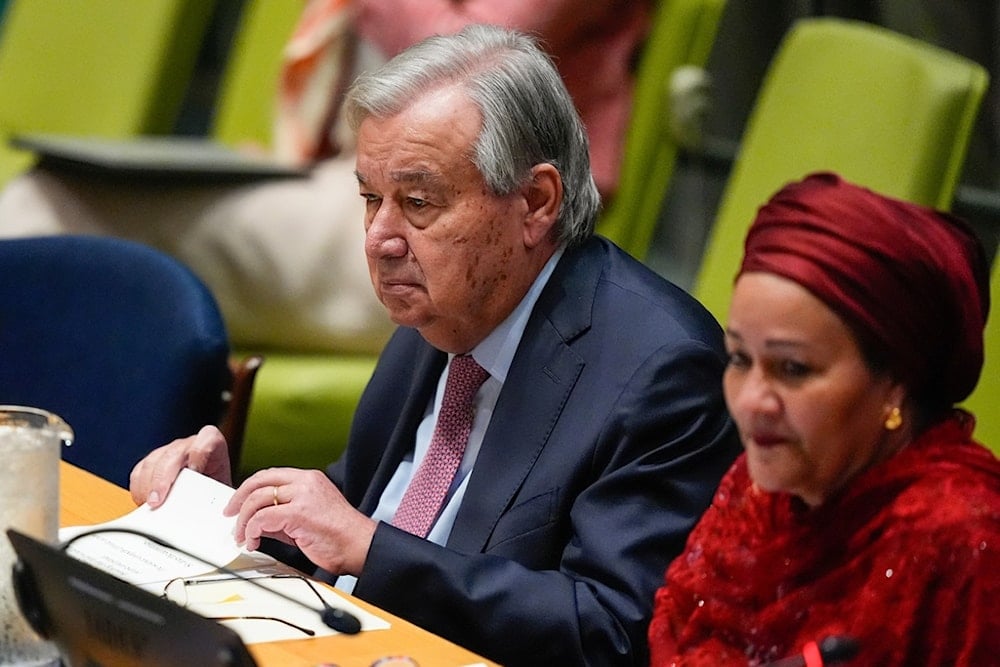Guterres calls for strict rules on military AI at UNSC session
UN Secretary-General Antonio Guterres urged the Security Council to regulate military use of artificial intelligence, calling for a ban on autonomous weapons, preservation of human oversight, and safeguards against AI-driven disinformation.
-

Secretary General Antonio Guterres leads a climate summit, Wednesday, Sept. 24, 2025, at UN headquarters. (AP Photo/Yuki Iwamura)
UN Secretary-General Antonio Guterres on Wednesday pressed the United Nations Security Council to put clear limits on the use of artificial intelligence in armed conflict, warning that failure to do so could erode international law and global stability.
"The Council and member states must ensure that military use of AI remains in full compliance with international law and the charter," Guterres told members during a dedicated session on artificial intelligence and international peace and security. "Human control and judgment must be preserved in every use of force."
Guterres reiterated his demand for a global ban on lethal autonomous weapon systems, often dubbed “killer robots”, that operate without human oversight. He stressed that their unchecked development could open a perilous regulatory void, making it harder to uphold the principles of distinction, proportionality, and accountability enshrined in international humanitarian law. "AI must never lower barriers to acquiring or using prohibited weapons, or undermine disarmament obligations," he warned, adding that decisions on nuclear weapons must remain under human control until they are eliminated altogether.
The secretary-general voiced optimism that negotiations could deliver a legally binding treaty by 2026, building on momentum from a UN General Assembly resolution last year in which more than 120 countries backed talks on restricting or banning autonomous weapons. Human rights groups, including Human Rights Watch, have argued that such systems inherently cross ethical lines because machines should never be allowed to decide matters of life and death.
Beyond the battlefield, Guterres urged the Council to address the use of AI in information warfare. He called for closer cooperation between governments, civil society, and media to counter AI-driven "deception," from deepfake propaganda to disinformation campaigns that can inflame conflicts or destabilize elections. Analysts have warned that generative AI tools are already lowering the cost of producing convincing fakes, raising the risk of manipulation during crises.
Guterres’ remarks come amid a growing consensus that rapid advances in AI, from targeting systems to cyber operations and influence campaigns, are outpacing existing regulatory frameworks. Experts warn that without urgent global action, military competition over AI could fuel a new arms race and undermine efforts at disarmament and conflict prevention.
Read more: Gaza; testing ground for Israeli AI tools, raising ethical concerns

 3 Min Read
3 Min Read








